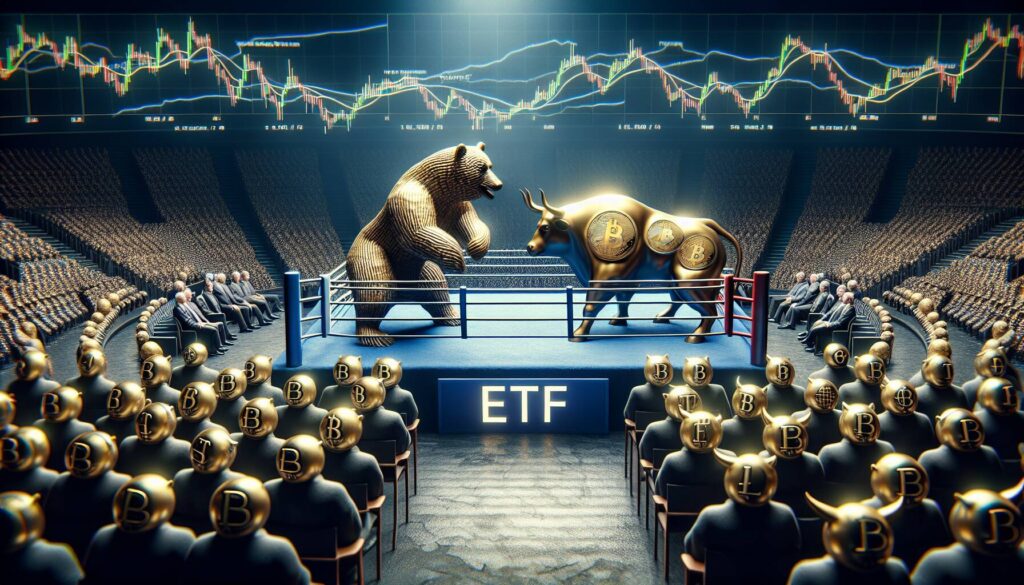In a noteworthy appearance at Bitcoin 2025 in Las Vegas, Donald Trump Jr. shared insights into his family’s evolving relationship with cryptocurrency, particularly in the context of the financial challenges faced during his father’s presidency. He recounted how he and his brother Eric played a pivotal role in introducing their father to the benefits of bitcoin and blockchain technology after experiencing significant banking setbacks. These challenges arose as they found themselves subjected to de-banking and legal scrutiny, prompting a closer examination of the traditional financial system’s vulnerabilities.
Trump Jr. admitted that although they initially viewed bitcoin as “nebulous,” their experiences in the political arena shifted their perspective. He highlighted how their first-hand encounters with financial obstacles galvanized their interest in digital assets. “We were getting de-banked, we were getting de-insured, we were getting de-everything. It was brutal,” he said, emphasizing the urgency of their pivot toward cryptocurrency as a potential solution.
“We probably, maybe got there a little bit before him. Once we started explaining the potential, he’s a quick study,” Trump Jr. remarked about his father’s eventual embrace of crypto.
As Trump discussed the democratization of finance, he indicated a belief that regulations might soon provide pivotal support for the burgeoning cryptocurrency market. With increasing calls for clarity on legislative measures surrounding stablecoins and market structures, Trump Jr. expressed optimism that these developments could propel bitcoin toward unprecedented growth. His remarks reflect a significant shift in the family’s crypto narrative, especially considering President Trump’s past skepticism, which included labeling bitcoin a scam in 2021.
The Trump family’s ventures into the cryptocurrency space have stirred controversy, including criticism regarding transparency and potential conflicts of interest. Nevertheless, the ongoing discussions surrounding crypto regulation could mark a transformative period for the industry. Don Jr.’s comments suggest that with a renewed focus on enhancing regulations, the future for bitcoin could indeed be promising.

Impact of Bitcoin Adoption by the Trump Family
Key points from the discussions on Bitcoin and its implications for the future:
- Family’s Financial Evolution
- Transition from real estate to cryptocurrency emphasis.
- Personal experiences with de-banking leading to awareness of traditional finance fragility.
- Influence on Donald Trump
- Donald Trump Jr. and Eric Trump played a key role in shifting their father’s view on cryptocurrency.
- Trump’s quick adaptation to understanding and supporting crypto post-family influence.
- Critique of Political Peers
- Humor and skepticism towards other political figures’ understanding of blockchain technology.
- Vision for Finance
- Trump emphasizes democratization of finance as an essential goal for America.
- Link between financial freedom and world peace discussed.
- Future of Cryptocurrency Regulations
- Anticipation of new legislation providing clarity and stability for the crypto market.
- Expectation of increased market activity and growth as regulations take shape.
“I think you have the perfect storm for this thing just going to the moon, as they say.”
Trump Family’s Crypto Journey: Comparative Insights
The recent comments by Donald Trump Jr. regarding the family’s journey into the world of cryptocurrency shed light on a significant shift in their approach to finance. While the Trump family has faced unique challenges such as de-banking, their pivot towards crypto reflects a broader trend among political figures adapting to the evolving financial landscape. Unlike other recent entrants into the cryptocurrency arena, the Trumps presented a narrative of resistance, catalyst-driven learning, and eventual embrace of blockchain technology, showcasing both the trials and triumphs they encountered.
Competitive Advantages: The Trump family’s high-profile platform provides them an extensive reach, drawing attention from both the media and crypto enthusiasts. Their longstanding influence in American politics allows them to position themselves as pioneers within the crypto debate, particularly as regulatory frameworks begin to take shape. Their personal experiences with de-banking provide a relatable context that resonates with everyday individuals facing similar frustrations within traditional financial systems. This connection can garner support from both Bitcoin advocates and those skeptical of existing banking infrastructures.
Moreover, their ability to harness public relations effectively, such as comparing their situation to industry challenges and criticizing rivals’ lack of crypto understanding, builds a compelling narrative, amplifying their voice amid growing regulatory discussions. As legislation around stablecoins and market structure approaches, their engagement can attract a wave of support among crypto backers who appreciate their advocacy for industry clarity.
Disadvantages and Potential Issues: However, the Trump family’s entry into the crypto space is not without controversy. Their ventures, like the TRUMP memecoin, have been criticized for lacking transparency and raising ethical concerns regarding conflicts of interest. This association might deter some investors who seek reputable leaders in the crypto domain, highlighting a significant hurdle. Critics may leverage this opacity to question the legitimacy of their initiatives, undermining trust in their advocacy for clearer regulations.
This juxtaposition of support and skepticism could backfire, creating rifts within the community, especially as some factions might prefer a more traditional, established approach to cryptocurrency legislation. Furthermore, the contention surrounding their family legacy could overshadow their contributions to the dialogue, alienating moderate consumers who remain wary of political entanglements in the crypto market.
Overall, as the Trump family navigates this complex landscape, their narrative could resonate with those frustrated by traditional financial systems, yet simultaneously, their involvement may create apprehension among those within the industry who favor stability and integrity over political affiliation.















